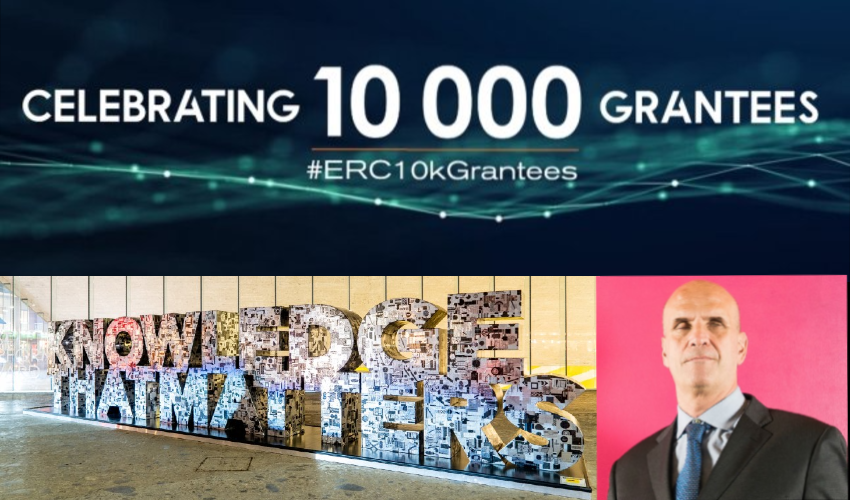
Thank You, European Research Council
THE ERC CELEBRATES ITS 10,000TH GRANTEE. MASSIMO MORELLI, THE WINNER OF ONE OF THE 41 GRANTS HOSTED AT BOCCONI, TELLS HOW IT EMPOWERED HIM, MAKING FANTASTIC RESEARCH POSSIBLEThe European Research Council (ERC), the most important European body supporting research, celebrates today 10,000 grantees funded since the inception of the program in 2007. If the grantees have, in different ways, contributed to transform science and research, the ERC has contributed to develop their careers and has made possible research advances that would otherwise have been impossible. Forty-one grants have been hosted at Bocconi.
Massimo Morelli, Professor of Political Science and Economics at Bocconi, is one of the 10,000 grantees who owe thanks to the ERC, and he does it in the name of all his Bocconi ERC-winning colleagues.
In 2016, the research project titled PolEc: The Political Economy of Power Relations earned him an ERC Advanced Grant and “since then”, he says, “I have done things I could only have dreamed of without the grant.”
“First and foremost, I have been able to set up a research team that built a dataset and innovative measures – based on big data and machine learning - of the military power of all the African ethnic groups relative to other groups and their national governments. Thank to this, we can now measure civil war risks and country risks, useful to NGOs and investors.”
Furthermore, Professor Morelli and his team have also measured the political power of the same ethnic groups and developed a theory that uses the balance (or unbalance) of military and political power to attempt to predict things such as the risk of violent confrontation and the variation of its intensity according to the variation in external variables such as technology, government changes; the conflict duration, its costs, and its consequences in terms of migration.
PolEc has two more pillars (populism as the result of power relations, and the power relations of bureaucracy and legislative power), and the ERC Grant has been fundamental for both of them. “Obtaining data on political campaigning, social media, and public opinion needs both computing power and human resources,” Prof. Morelli says, “and the same is true for the empirical effort produced to analyze Italian legislation throughout 70 years and compare it to German legislation. We found that a surge in political instability creates incentives for incompetent politicians to pass too many laws, in order to build a reputation as skillful reformers. As too many laws curtail bureaucratic efficiency, though, the economy bears the brunt of a Kafkaesque condition.”
by Fabio Todesco
